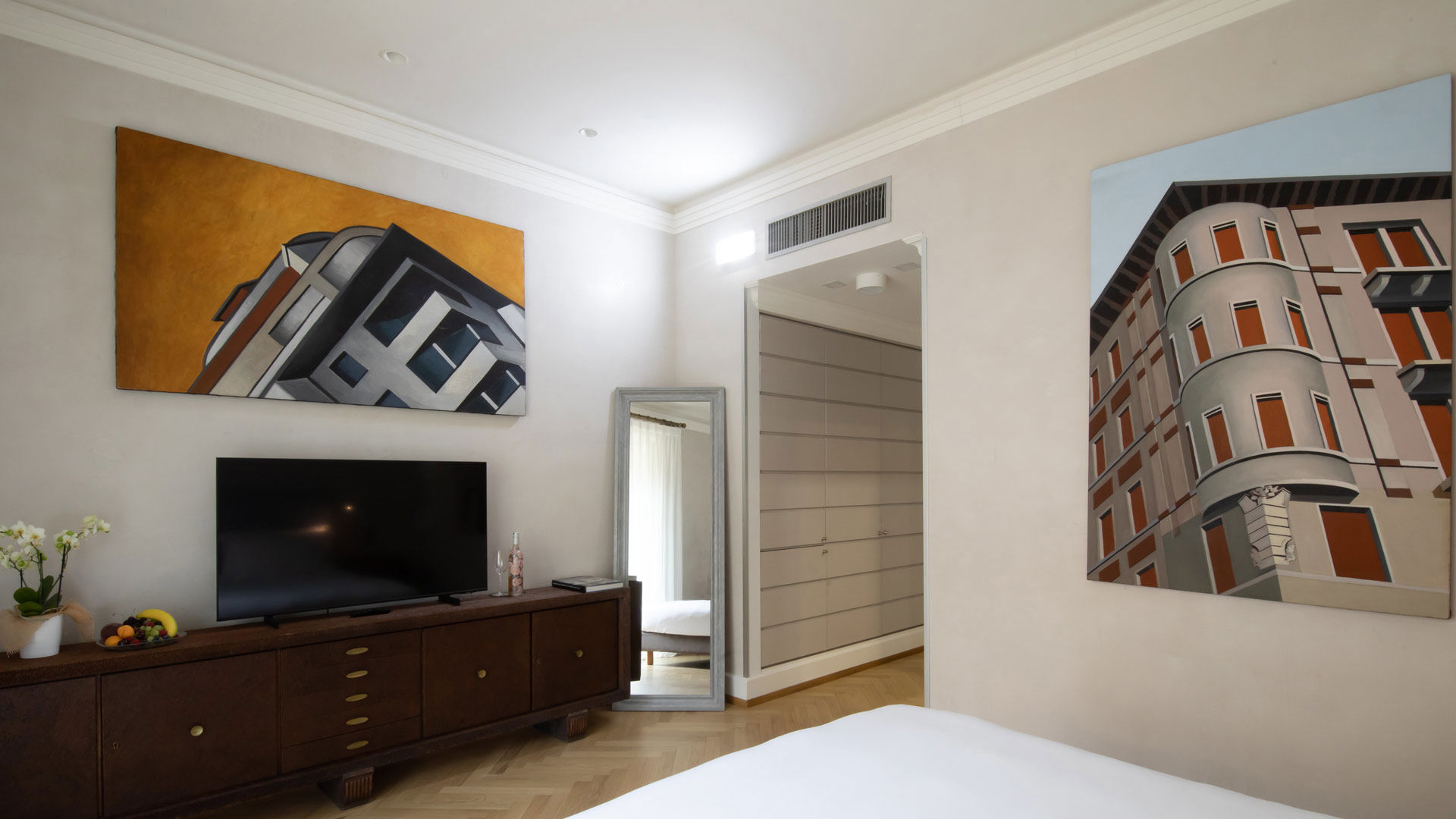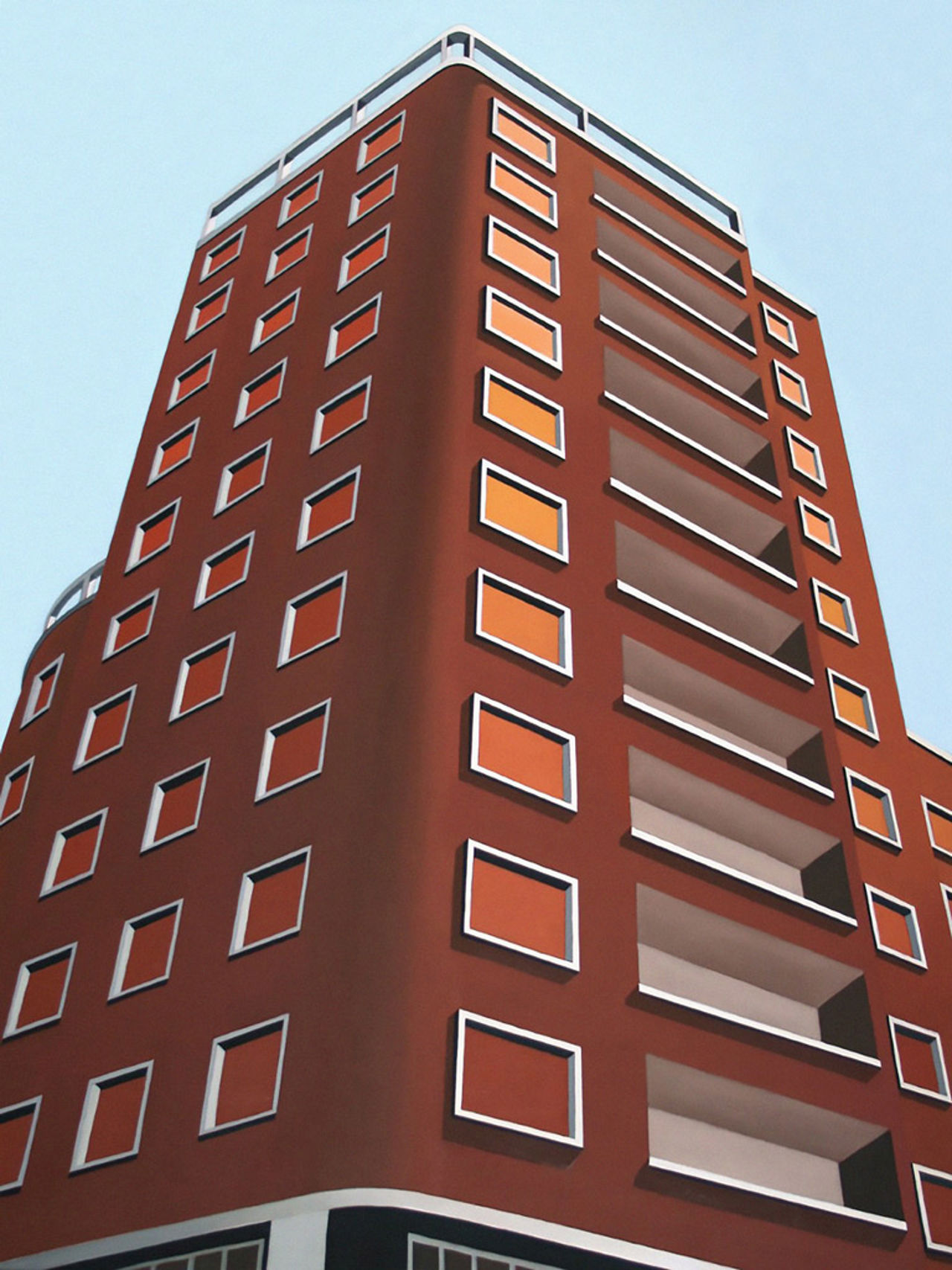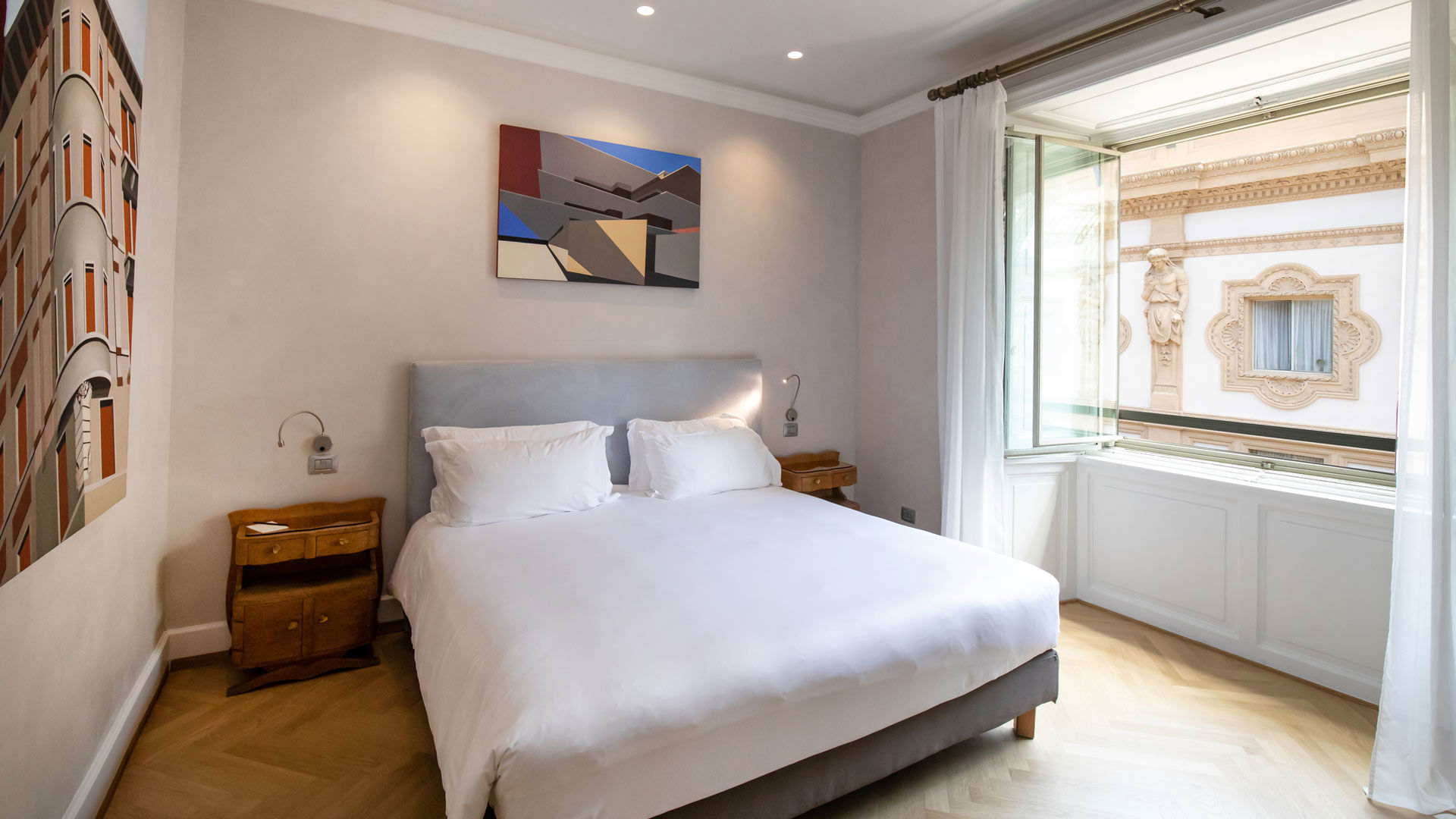Marco Petrus es uno de los artistas italianos que ha trabajado con mayor intensidad y coherencia sobre el tema del paisaje urbano. Los escenarios de sus pinturas están concebidos para representar únicamente la estructura simbólica del paisaje urbano, más que una representación realista. Las ciudades de Petrus carecen de esos símbolos externos (señales, semáforos, letreros, coches, transeúntes, etc.) que normalmente caracterizan el caos urbano contemporáneo. Se distinguen por un juego cada vez más riguroso y lineal de colores, marcado por líneas claras y bien definidas y fondos planos, en una búsqueda de la esencialidad y la linearidad de la composición que define su obra.
Marco Petrus
Artistas


De este modo, su pintura, con un análisis cada vez más profundo del espacio y la forma, partiendo de los íconos del paisaje contemporáneo, cambia gradualmente su lenguaje y enfoque formal en el lienzo. Se libera progresivamente de la mera relectura figurativa de elementos y perspectivas del paisaje urbano para llevar a cabo una investigación rigurosa e impecable sobre la "forma pura" de la arquitectura. El trabajo de análisis de la forma original se convierte, así, en un pretexto para una investigación más amplia sobre el propio significado de la pintura y la representación.
Marco Petrus nació en Rímini en 1960, pero desde su infancia vive con su familia en Milán. Desde temprana edad mostró interés por la arquitectura y el paisaje urbano, especialmente en Milán. El artista tiene un interés particular por la arquitectura de los años 30 y 40, que constituye el núcleo fundador y precursor de los extraordinarios desarrollos urbanos de la capital lombarda en las décadas posteriores. Su interés por el paisaje urbano lo ha llevado a colaborar con institutos y facultades de arquitectura de distintos países, desde la Trienal de Milán hasta el Centralnyj Dom Arkitektora en Moscú. Entre las instituciones y museos con los que ha colaborado se encuentran: la Bienal de Venecia, la Casa del Mantegna en Mantua, el Museo Bilotti en Roma, el PAC y el Palazzo Reale en Milán, la Galería de Arte Moderno de Génova y el Marca de Catanzaro.


